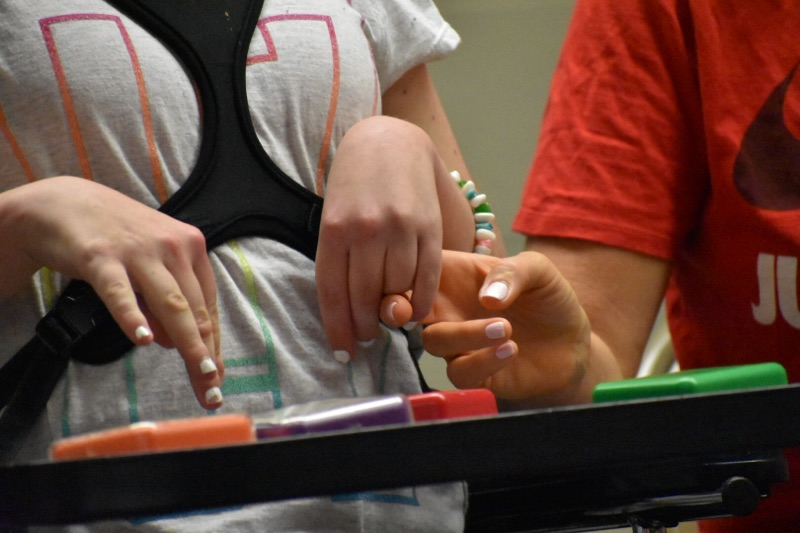Facilitating Support Groups
Offering healing and hope to people with disabilities is an essential mark of God’s reign and a sign that Jesus, our Messiah, is present and active (Matt 11:4-5). Support groups focus on fostering connections between people in the congregation with a common disability or mental illness and creating spaces for them to learn from and support each other. Whether you focus on faith openly in the group or choose to keep it in the background, you will have the opportunity to build relationships of caring that embody Christ’s love to those in the wider community.
The heart of a support group is ending the isolation, so plan deliberately to nurture connection. Asking people to introduce themselves at each meeting is a simple way to build connection and help newcomers feel welcome. Keep your focus positive and on topics that will help people in coping with issues that impact their daily lives.
Tips for Starting a Support Group
- Decide who you are appealing to. Let your own knowledge guide you as you think about how to focus the emerging group. A narrower focus will appeal to people who want specific information about a particular condition. A wider approach works when many different conditions involve similar support needs.
- Find partners who share your vision. A good starting place is to find others who share your vision and whose gifts and working style are complementary to your own. If you obtain the blessing of your congregation, you will gain prayer partners to lean on when you feel discouraged. You may also draw others into your ministry.
- Develop a working understanding with church leadership. Questions to consider with the congregation:
- How does this group relate to your congregation’s mission and vision?
- To whom in the church will the group leaders be accountable?
- What do you hope the congregation will provide for the group? Meeting spaces, photocopies, prayer support, snacks, child care?
- How will you keep the wider congregation informed about your group?
- Find a Core Group of Participants. A group of three or four people who are excited about and committed to attending the group will help sustain the group while it grows.
- Advertise. For the group to grow, people must know about it. Ask for the endorsement of groups willing to tell their constituents about you. Announce your meetings in the local newspapers and bulletins before each meeting. They often will print such announcements as a public service for no charge. Call and ask for the email address to send meeting notices. Use the Internet to get the word out. Take advantage of disability organizations that will list your group online for free. Providing your contact information to such groups has the added advantage of learning what they have to offer you. Post flyers about your group on public bulletin boards in local coffee shops or other places frequented by your targeted demographic.
- Organize. Once you have a few interested persons, convene an ad-hoc advisory group periodically who can give your leadership team ideas and broaden your perspective. Decide how democratically you want to run your group. Fewer decision makers may enhance efficiency and dependability. Wider participation offers the benefit of diverse gifts and perspectives and wider investment in sustaining the group over time. Email communication may be efficient, but face-to-face meetings of leaders build community, which contributes to the group’s purposes and sustainability.
Tips for Running a Support Group
- Build a community. The heart of a support group is ending the isolation, so plan deliberately to nurture connection. Asking people to introduce themselves at each meeting is a simple way to build connection and help newcomers feel welcome. If the group becomes large, consider breaking into small groups of 3-5 sometimes so that each person gets a chance to be heard. Build community between meetings through regular communication like email, social media, or group texts, depending on the size and preferences of your group.
- Run meetings purposefully. Start and end meetings on time. Stop early to allow time for informal conversation afterward. Draw on the expertise of professionals in your area who will speak at your meetings. Experiment with different formats to see what draws the most interest. We are finding that busy people turn out in more numbers for our meetings when a professional will be speaking on a topic of interest.
- Keep the focus positive. Keep your focus positive and on topics that will actually help people in coping with issues that impact their daily lives. Avoid gripe sessions and flaming controversies about theoretical matters, or you will drive people away who desperately need help. Sometimes staying positive requires tactfully intervening with individuals who may not always have the best social skills or who monopolize or steer the conversation off topic.
Tips for Sustaining a Support Group
- Ask for feedback. Regularly ask for feedback from those who attend your meetings and pay attention to what they are telling you. Consider handing out file cards at meetings and asking each person to briefly write what was helpful and what was not.
- Plan for sustainability. Once your group gets off the ground, begin to think about how the group will survive long term. Invite and encourage others to help you with aspects of leadership and be willing to relinquish control and share the work. Remember that creating space for others to discover and use their gifts can be a blessing to them and a relief to you.
Resources from Others
Starting a Spiritual Support Group for Mental Health and Wellness In Your Faith Community, Interfaith Network on Mental Illness.
Your Stories
-

SEEDS: a disability ministry at Blooming Glen Mennonite Church
The process of beginning a disability ministry at Blooming Glen Mennonite Church, Perkasie, PA, which turned into a thriving community.



